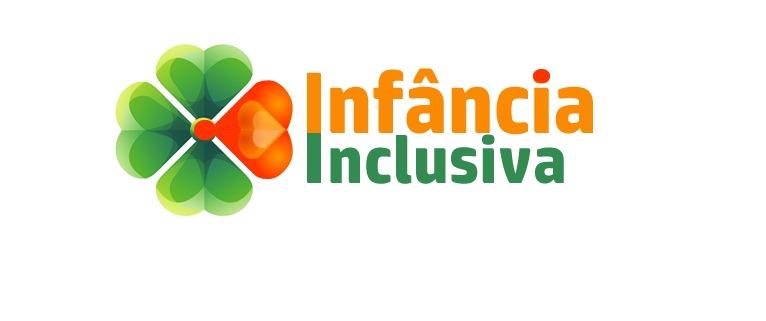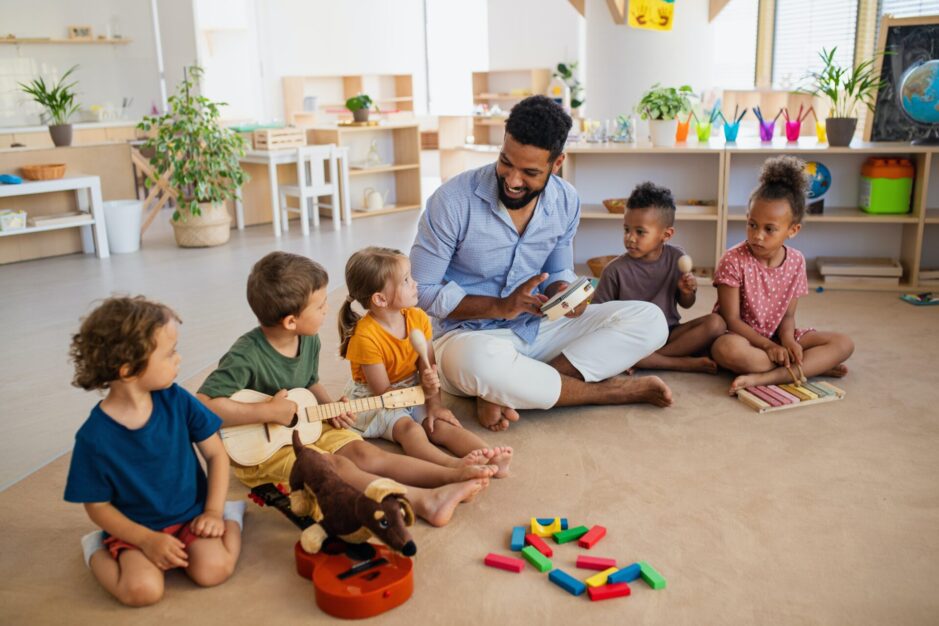Artigo 1: Definição de criança
Uma criança é qualquer pessoa com menos de 18 anos.
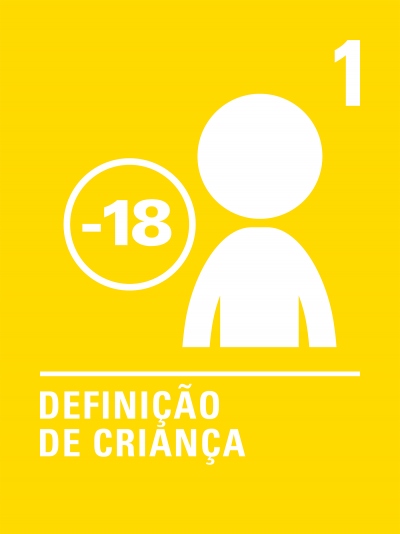
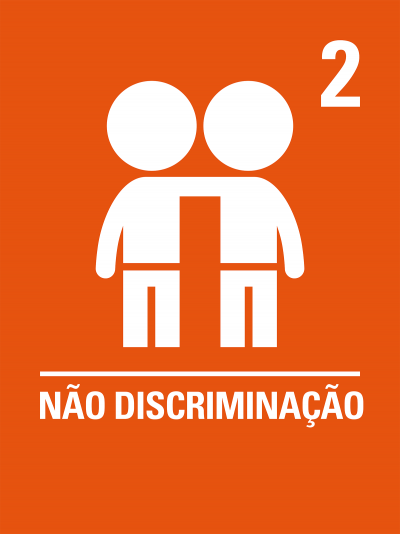
Artigo 2 : Não discriminação
Todas as crianças têm todos esses direitos, não importa quem sejam, onde vivam, qual idioma falem, qual sua religião, o que pensam, como se parecem, se são meninos ou meninas, se têm alguma deficiência, se são ricas ou pobres, e não importa quem sejam seus pais ou famílias ou o que seus pais ou famílias acreditem ou façam. Nenhuma criança deve ser tratada injustamente por nenhum motivo.
Artigo 3: Melhor interesse da criança
Quando os adultos tomam decisões, devem pensar em como suas decisões afetarão as crianças. Todos os adultos devem fazer o que é melhor para as crianças. Os governos devem garantir que as crianças sejam protegidas e cuidadas por seus pais, ou por outras pessoas quando necessário. Os governos devem garantir que as pessoas e locais responsáveis pelo cuidado das crianças estejam fazendo um bom trabalho.
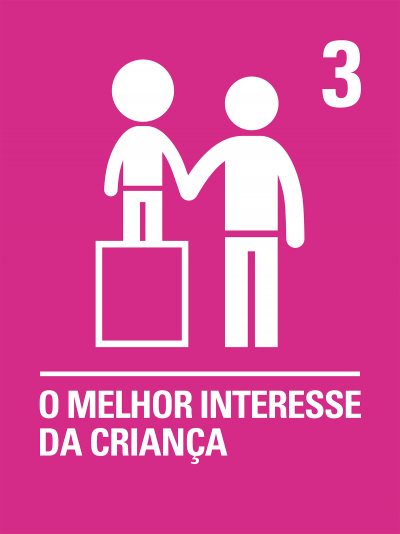
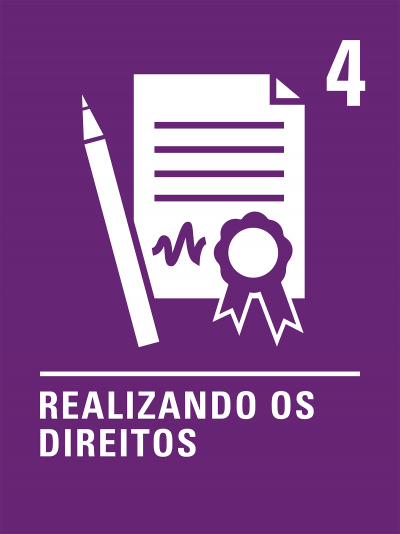
Artigo 4: Tornar os direitos uma realidade
Os governos devem fazer tudo que podem para garantir que cada criança em seus países possa desfrutar de todos os direitos desta Convenção.
Artigo 5: Orientação familiar à medida que as crianças se desenvolvem
Os governos devem permitir que as famílias e comunidades orientem suas crianças para que, à medida que cresçam, aprendam a usar seus direitos da melhor maneira. Quanto mais as crianças crescem, menos orientação elas precisarão.
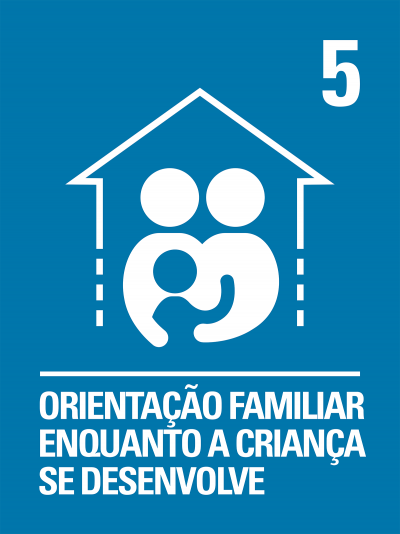
.
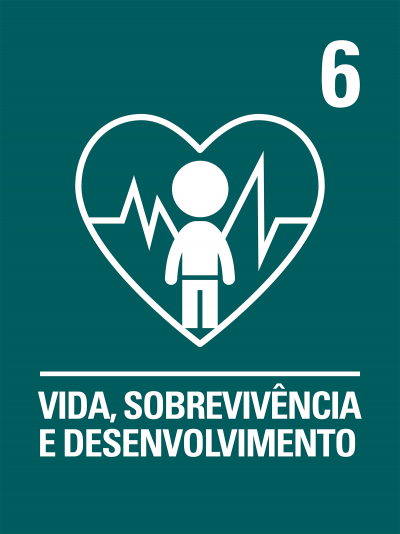
Artigo 6: Sobrevivência e desenvolvimento da vida
Toda criança tem o direito de estar viva. Os governos devem garantir que as crianças sobrevivam e se desenvolvam da melhor maneira possível.
Artigo 7: Nome e nacionalidade
As crianças devem ser registradas quando nascem e receber um nome oficialmente reconhecido pelo governo. As crianças devem ter uma nacionalidade (pertencer a um país). Sempre que possível, as crianças devem conhecer seus pais e ser cuidadas por eles.
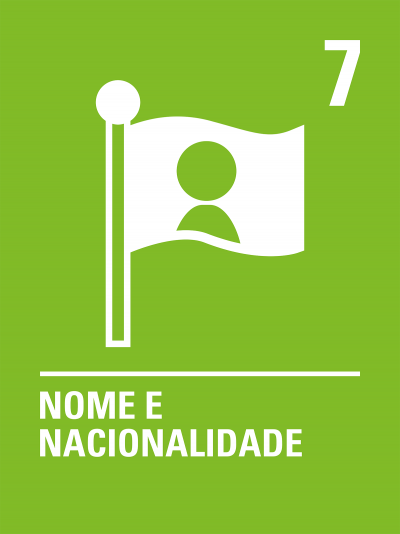
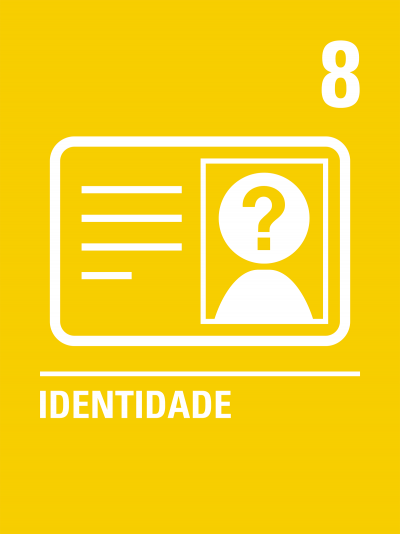
Artigo 8: Identidade
As crianças têm o direito à sua própria identidade – um registro oficial de quem são, que inclui seu nome, nacionalidade e relações familiares. Ninguém deve tirar isso delas, mas se isso acontecer, os governos devem ajudar as crianças a recuperar rapidamente sua identidade.
Artigo 9: Manter as famílias unidas
As crianças não devem ser separadas de seus pais, a menos que não estejam sendo adequadamente cuidadas – por exemplo, se um dos pais machuca ou não cuida da criança. Crianças cujos pais não vivem juntos devem manter contato com ambos os pais, a menos que isso possa prejudicar a criança.
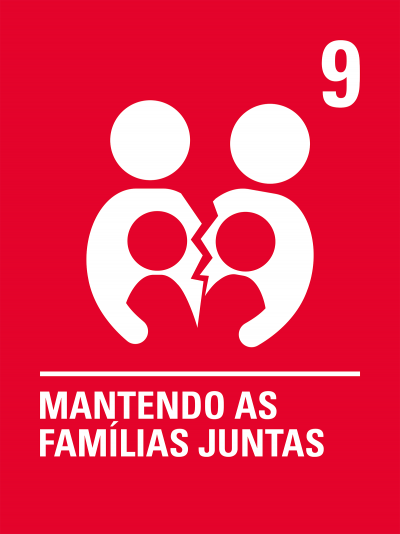
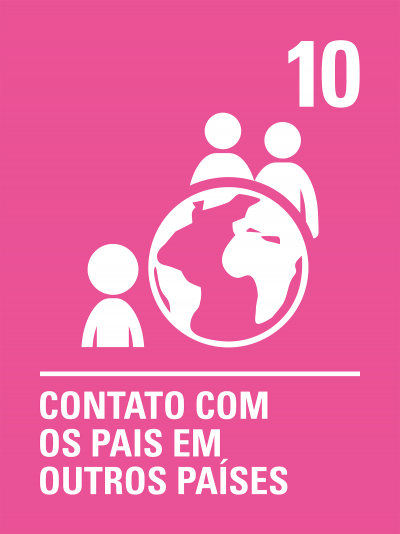
Artigo 10: Contato com os pais em outros países
Se uma criança vive em um país diferente de seus pais, os governos devem permitir que a criança e os pais viagem para que possam manter contato e ficar juntos.
Artigo 11: Proteção contra sequestro
Os governos devem impedir que crianças sejam levadas para fora do país quando isso é contra a lei – por exemplo, sendo sequestradas por alguém ou mantidas no exterior por um dos pais quando o outro não concorda.
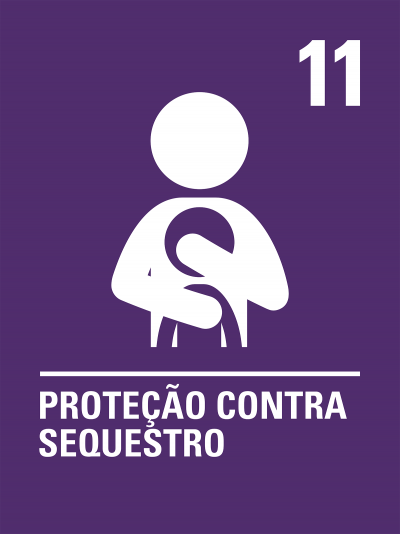
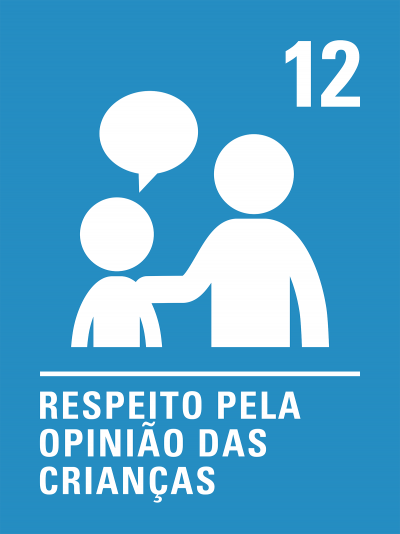
Artigo 12: Respeito pelas opiniões das crianças
As crianças têm o direito de dar suas opiniões livremente sobre questões que as afetam. Os adultos devem ouvir e levar as crianças a sério.
Artigo 13: Compartilhar pensamentos livremente
As crianças têm o direito de compartilhar livremente com os outros o que aprendem, pensam e sentem, falando, desenhando, escrevendo ou de qualquer outra forma, a menos que isso prejudique outras pessoas.
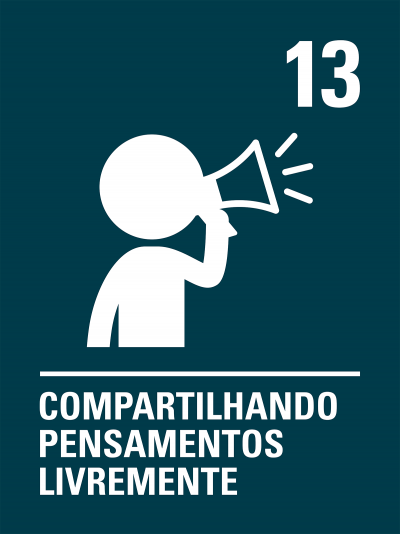
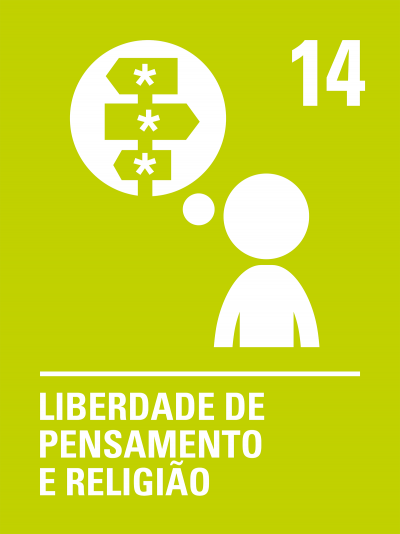
Artigo 14: Liberdade de pensamento e religião
As crianças podem escolher seus próprios pensamentos, opiniões e religião, mas isso não deve impedir outras pessoas de desfrutar de seus direitos. Os pais podem orientar as crianças para que, à medida que cresçam, aprendam a usar adequadamente esse direito.
Artigo 15: Criação ou adesão a grupos
As crianças podem ingressar ou criar grupos ou organizações e podem se reunir com outras, desde que isso não prejudique outras pessoas.
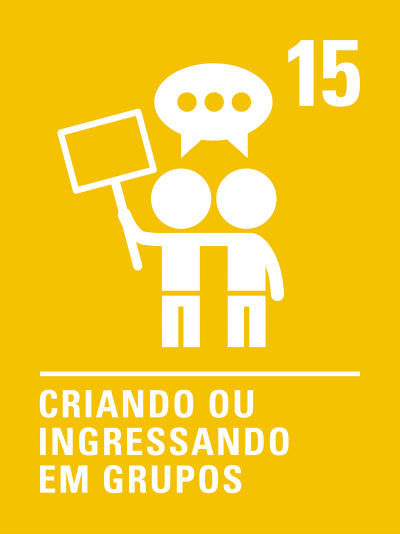
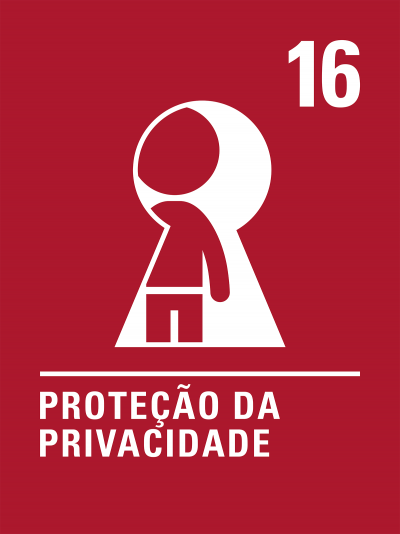
Artigo 16: Proteção da privacidade
Toda criança tem o direito à privacidade. A lei deve proteger a privacidade das crianças, sua família, lar, comunicações e reputação (ou bom nome) de qualquer ataque.
Artigo 17: Acesso à informação
As crianças têm o direito de obter informações da Internet, rádio, televisão, jornais, livros e outras fontes. Os adultos devem garantir que as informações que estão obtendo não sejam prejudiciais. Os governos devem incentivar a mídia a compartilhar informações de muitas fontes diferentes, em idiomas que todas as crianças possam entender.
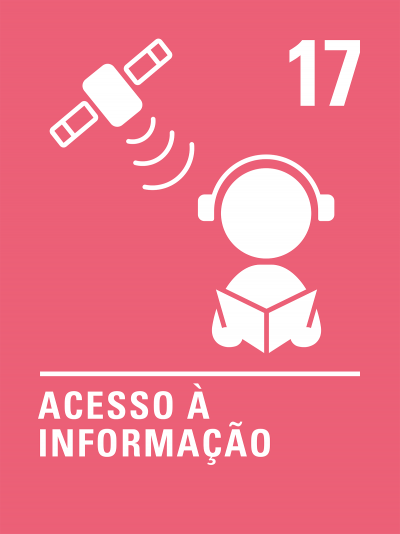
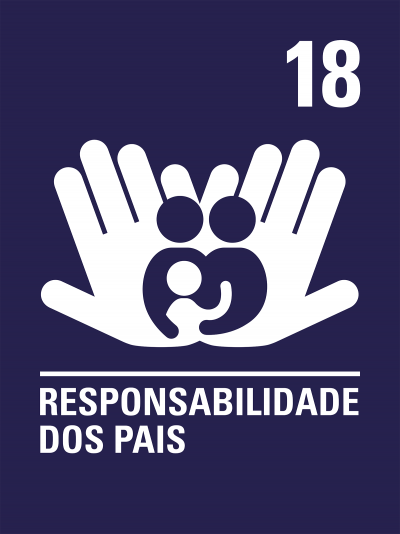
Artigo 18: Responsabilidade dos pais
Os pais são as principais pessoas responsáveis pela criação de uma criança. Quando a criança não tem pais, outro adulto terá essa responsabilidade e é chamado de “guardião”. Pais e guardiões devem sempre considerar o que é melhor para aquela criança. Os governos devem ajudá-los. Quando uma criança tem ambos os pais, ambos devem ser responsáveis pela criação da criança.
Artigo 19: Proteção contra violência
Os governos devem proteger as crianças de violência, abuso e negligência por qualquer pessoa que cuide delas.
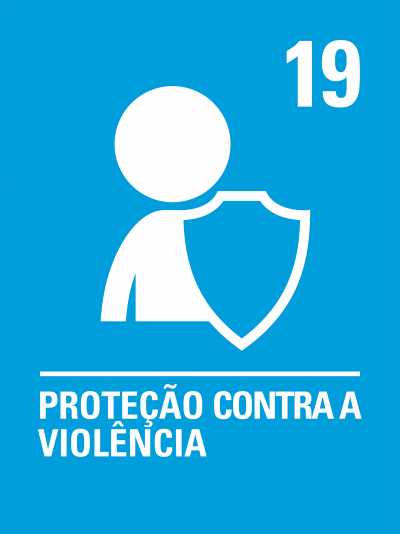
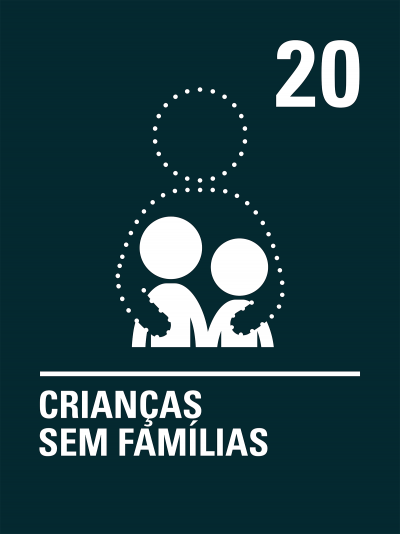
Artigo 20: Crianças sem famílias
Toda criança que não pode ser cuidada por sua própria família tem o direito de ser cuidada adequadamente por pessoas que respeitam a religião, cultura, língua e outros aspectos da vida da criança.
Artigo 21: Crianças adotadas
Quando as crianças são adotadas, o mais importante é fazer o que é melhor para elas. Se uma criança não pode ser adequadamente cuidada em seu próprio país – por exemplo, vivendo com outra família – então ela pode ser adotada em outro país.
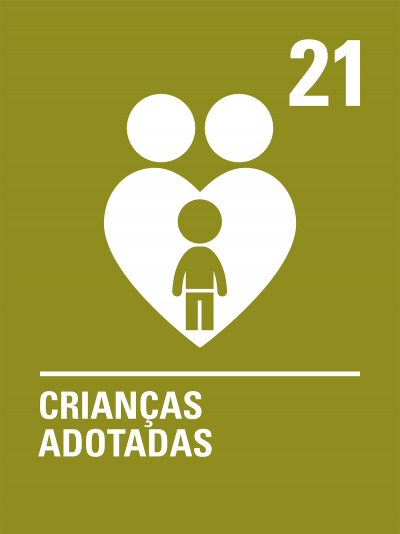
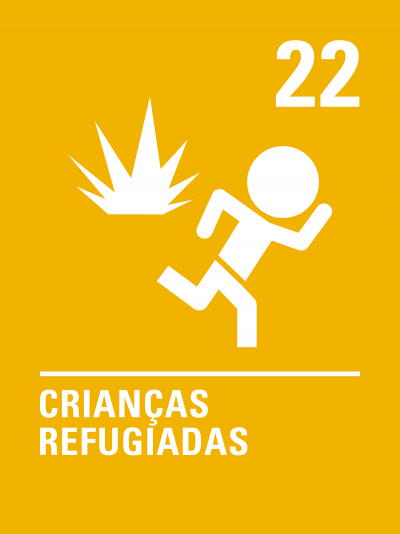
Artigo 22: Crianças refugiadas
Crianças que se deslocam de seu país de origem para outro país como refugiadas (porque não era seguro para elas permanecerem lá) devem receber ajuda e proteção e ter os mesmos direitos que as crianças nascidas naquele país.
Artigo 23: Crianças com deficiências
Toda criança com deficiência deve desfrutar da melhor vida possível na sociedade. Os governos devem remover todos os obstáculos para que crianças com deficiências se tornem independentes e participem ativamente na comunidade.
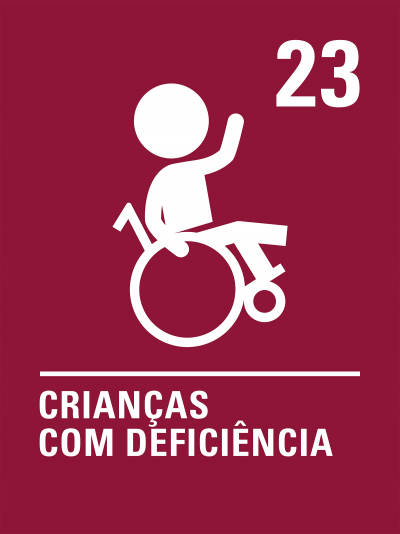
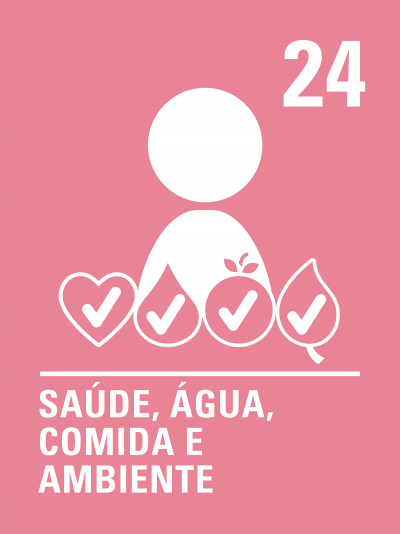
Artigo 24: Saúde, água, comida e ambiente
As crianças têm o direito ao melhor cuidado de saúde possível, água limpa para beber, alimentos saudáveis e um ambiente limpo e seguro para viver. Todos os adultos e crianças devem ter informações sobre como se manter seguros e saudáveis.
Artigo 25: Revisão da colocação da criança
Toda criança que foi colocada em algum lugar longe de casa – para seu cuidado, proteção ou saúde – deve ter sua situação verificada regularmente para ver se tudo está indo bem e se ainda é o melhor lugar para a criança estar.
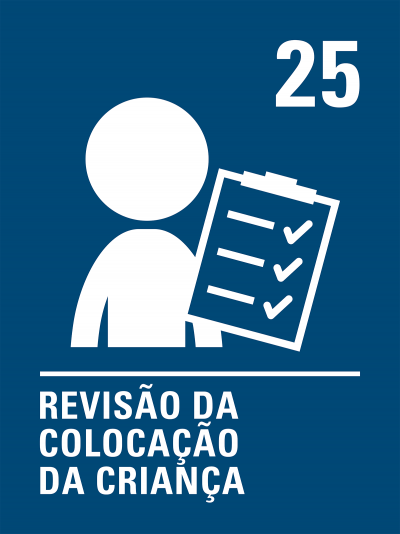
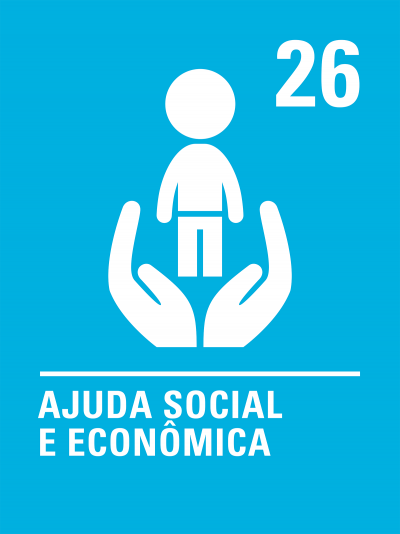
Artigo 26: Ajuda social e econômica
Os governos devem fornecer dinheiro ou outro apoio para ajudar crianças de famílias pobres.
Artigo 27: Comida, roupas e um lar seguro
As crianças têm o direito à alimentação, vestuário e um lugar seguro para viver para que possam se desenvolver da melhor maneira possível. O governo deve ajudar famílias e crianças que não podem pagar por isso.
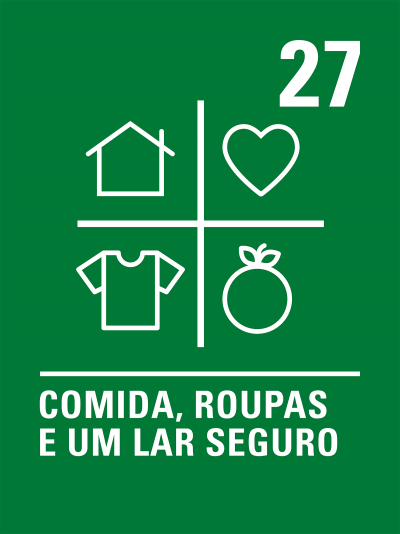
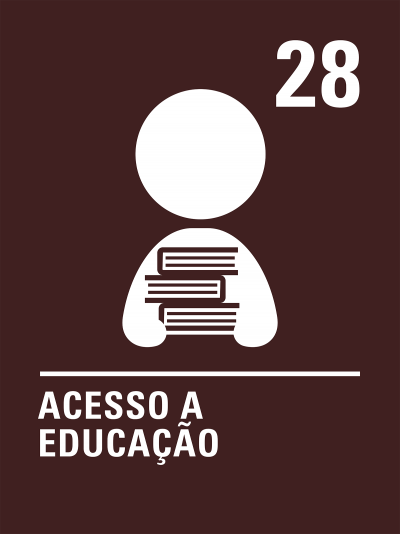
Artigo 28: Acesso à educação
Toda criança tem o direito à educação. A educação primária deve ser gratuita. Educação secundária e superior deve estar disponível para todas as crianças. As crianças devem ser incentivadas a ir à escola até o nível mais alto possível. A disciplina nas escolas deve respeitar os direitos das crianças e nunca usar violência.
Artigo 29: Objetivos da educação
A educação das crianças deve ajudá-las a desenvolver plenamente suas personalidades, talentos e habilidades. Deve ensiná-las a entender seus próprios direitos e a respeitar os direitos, culturas e diferenças das outras pessoas. Deve ajudá-las a viver em paz e proteger o meio ambiente.

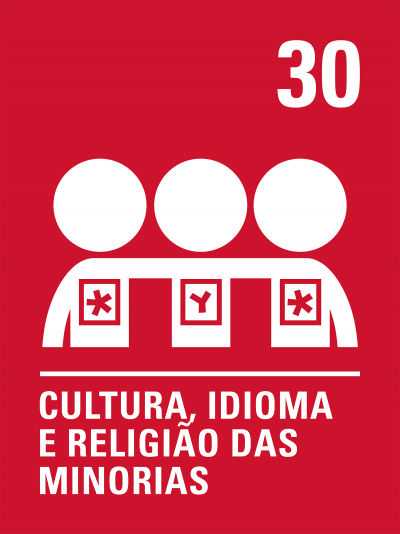
Artigo 30: Cultura, Língua e Religião das Minorias
As crianças têm o direito de usar sua própria língua, cultura e religião – mesmo que estas não sejam compartilhadas pela maioria das pessoas no país onde vivem.
Artigo 31: Descanso, Brincadeiras, Cultura e Artes
Cada criança tem o direito de descansar, relaxar, brincar e participar de atividades culturais e criativas.
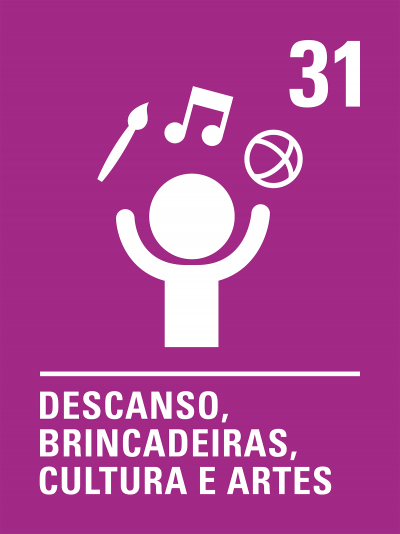
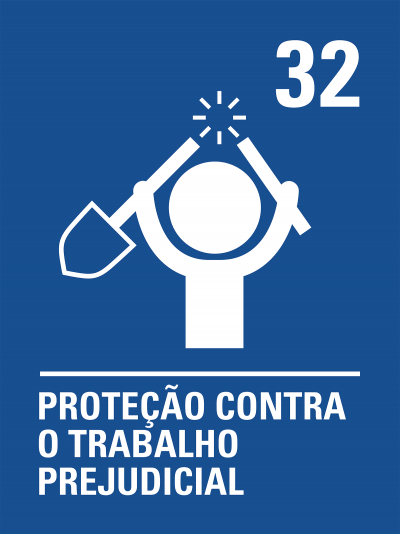
Artigo 32: Proteção Contra o Trabalho Prejudicial
As crianças têm o direito de ser protegidas de realizar trabalhos que sejam perigosos ou prejudiciais à sua educação, saúde ou desenvolvimento. Se as crianças trabalharem, elas têm o direito de estar seguras e serem remuneradas de forma justa.
Artigo 33: Proteção Contra Drogas Prejudiciais
Os governos devem proteger as crianças de tomar, produzir, transportar ou vender drogas prejudiciais.
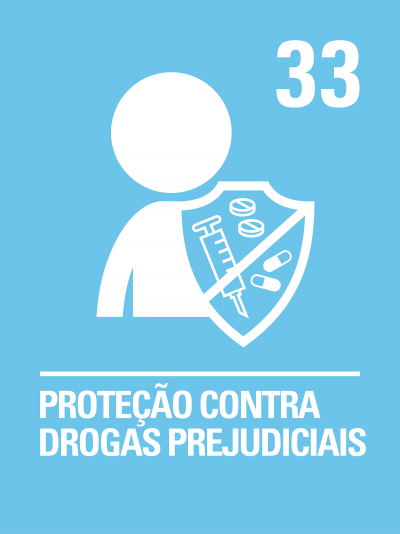
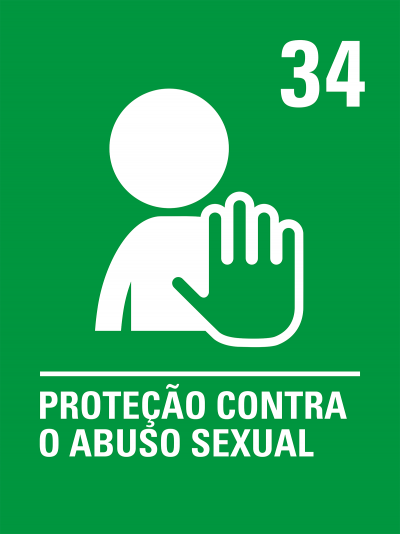
Artigo 34: Proteção Contra o Abuso Sexual
O governo deve proteger as crianças da exploração sexual (sendo aproveitadas) e abuso sexual, incluindo por pessoas que forçam crianças a terem relações sexuais em troca de dinheiro, ou produzindo imagens ou filmes sexuais delas.
Artigo 35: Prevenção de Venda e Tráfico
Os governos devem garantir que as crianças não sejam sequestradas ou vendidas, ou levadas para outros países ou locais para serem exploradas (aproveitadas).
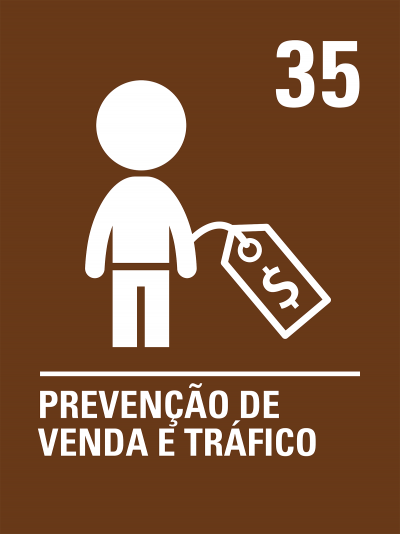
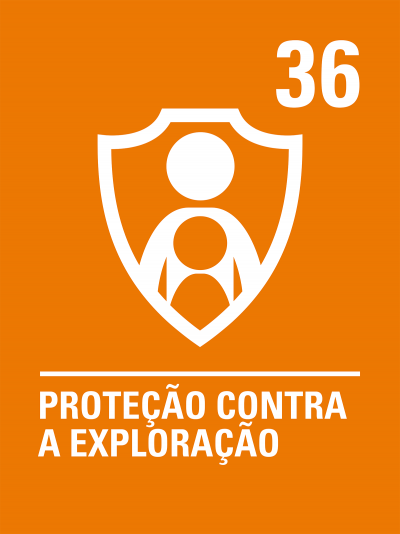
Artigo 36: Proteção Contra a Exploração
As crianças têm o direito de ser protegidas de todos os outros tipos de exploração (ser objeto de proveito), mesmo que estes não estejam especificamente mencionados nesta Convenção.
Artigo 37: Privação de Liberdade
Crianças acusadas de violar a lei não devem ser mortas, torturadas, tratadas cruelmente, colocadas na prisão para sempre, ou colocadas na prisão com adultos. A prisão sempre deve ser a última escolha e apenas pelo menor tempo possível. Crianças na prisão devem ter ajuda legal e poder manter contato com suas famílias.
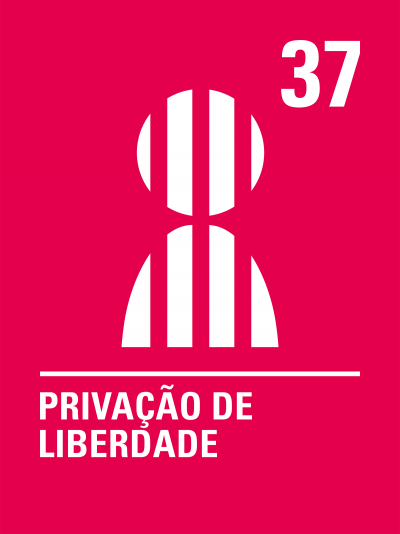
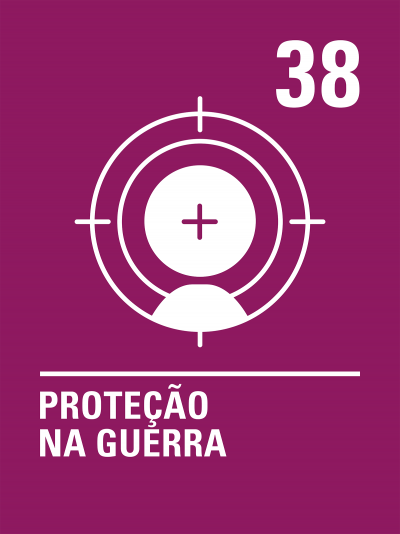
Artigo 38: Proteção na Guerra
As crianças têm o direito de ser protegidas durante a guerra. Nenhuma criança com menos de 15 anos pode ingressar no exército ou participar da guerra.
Artigo 39: Recuperação e Reintegração
As crianças têm o direito de receber ajuda se foram feridas, negligenciadas, maltratadas ou afetadas pela guerra, para que possam recuperar sua saúde e dignidade.
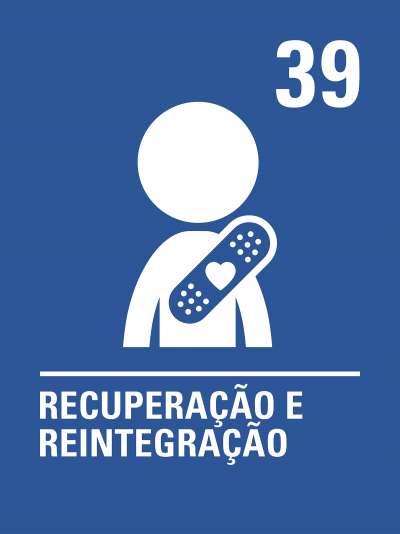
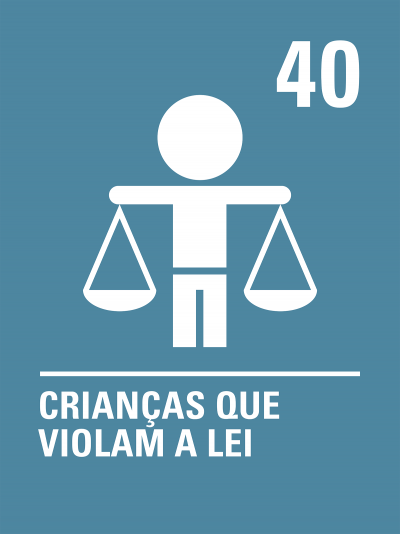
Artigo 40: Crianças que Violam a Lei
Crianças acusadas de violar a lei têm o direito a assistência jurídica e tratamento justo. Deve haver várias soluções para ajudar essas crianças a se tornarem bons membros de suas comunidades. A prisão deve ser a última escolha.
Artigo 41: As Melhores Leis para Crianças Devem Ser Aplicadas
Se as leis de um país protegerem melhor os direitos das crianças do que esta Convenção, então essas leis devem ser usadas.
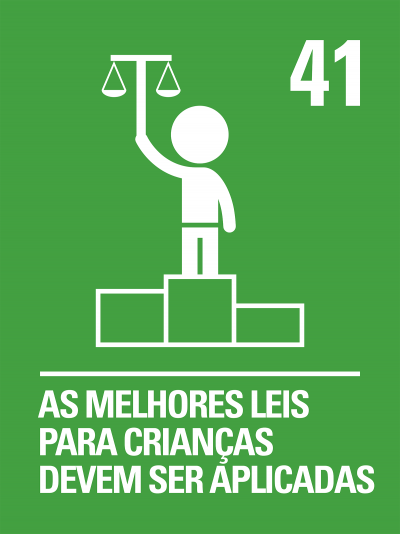
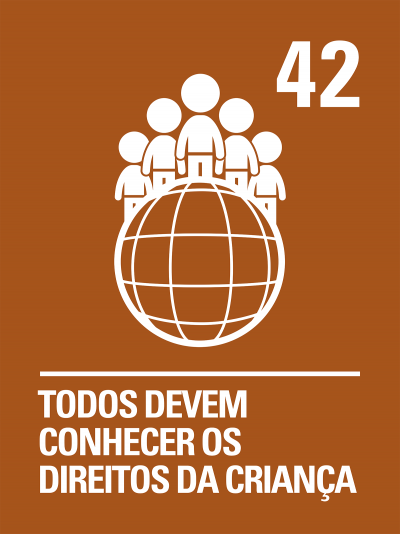
Artigo 42: Todos Devem Conhecer os Direitos das Crianças
Os governos devem informar ativamente crianças e adultos sobre esta Convenção, para que todos conheçam os direitos das crianças.
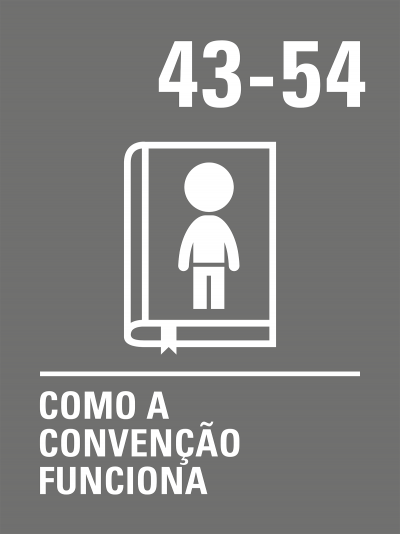
Artigo 43-54: Como a Convenção Funciona :
Estes artigos explicam como os governos, as Nações Unidas – incluindo o Comitê sobre os Direitos da Criança e o UNICEF – e outras organizações trabalham para garantir que todas as crianças desfrutem de todos os seus direitos.
Fonte: The Convention on the Rights of the Child: The children’s version
Para conhecer a Convenção sobre os Direitos da Criança na íntegra, clique aqui.
